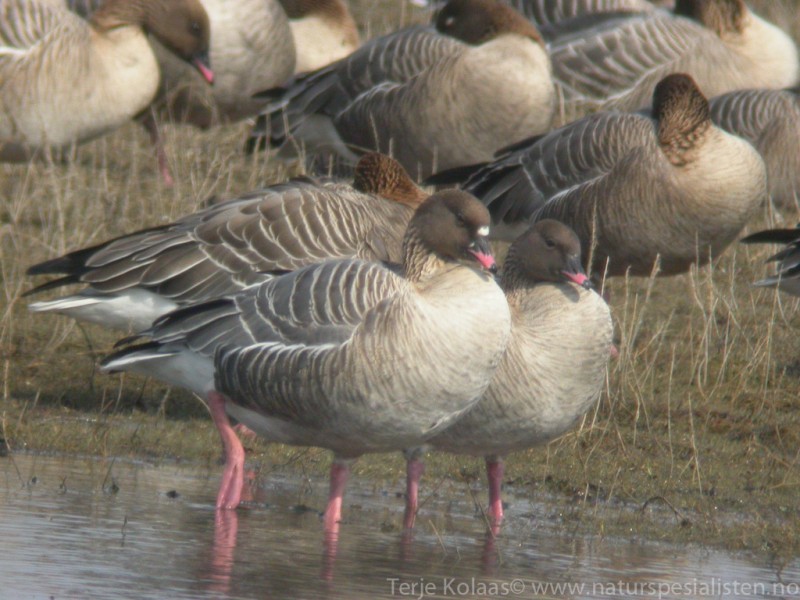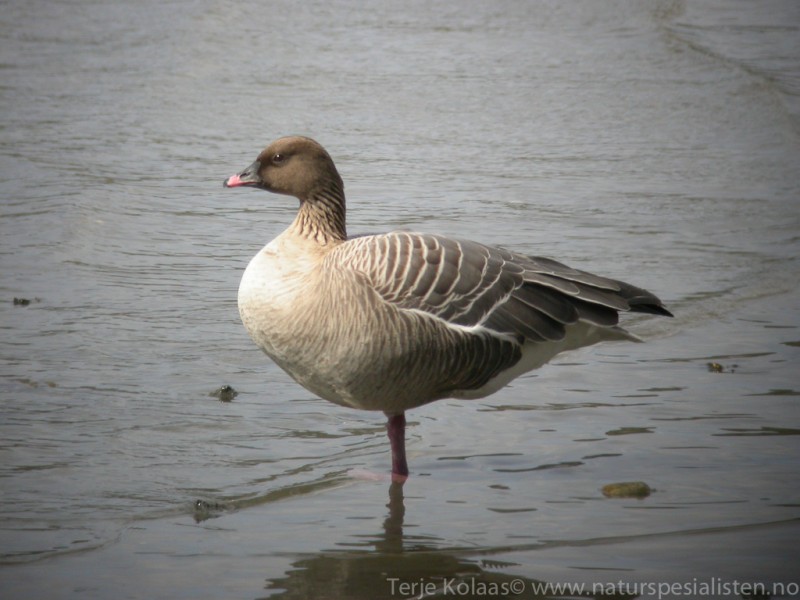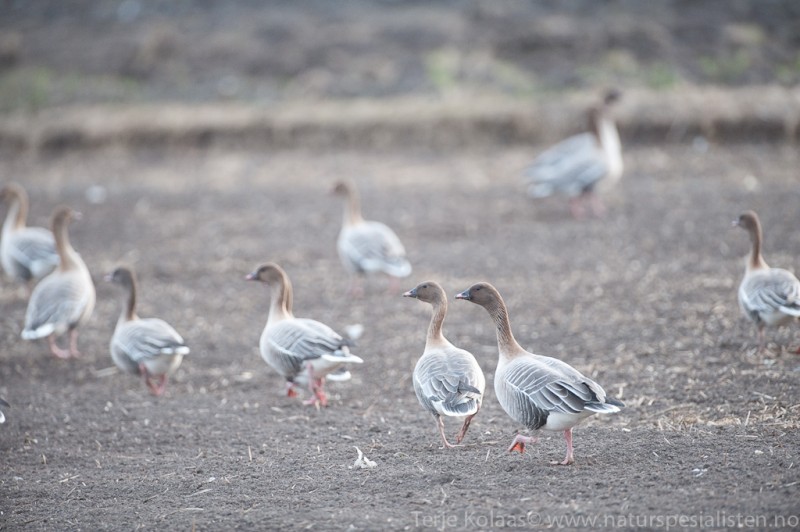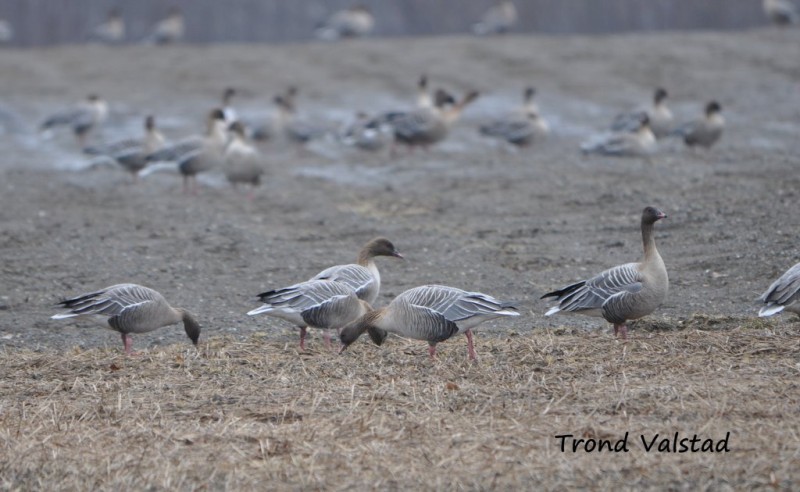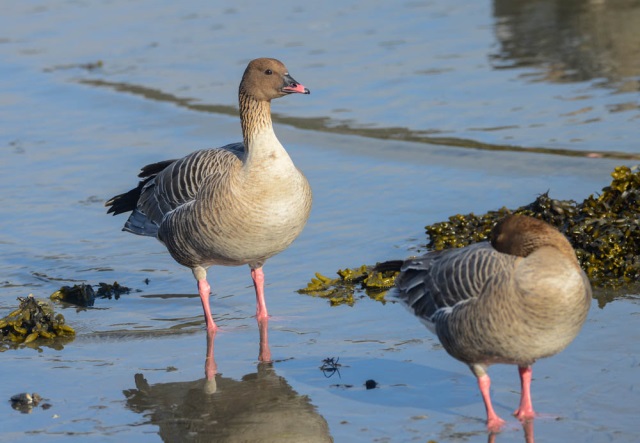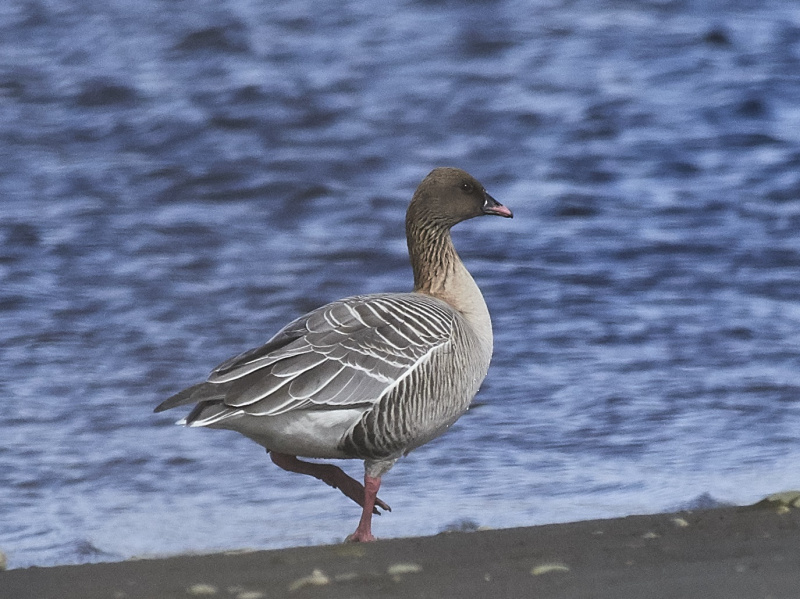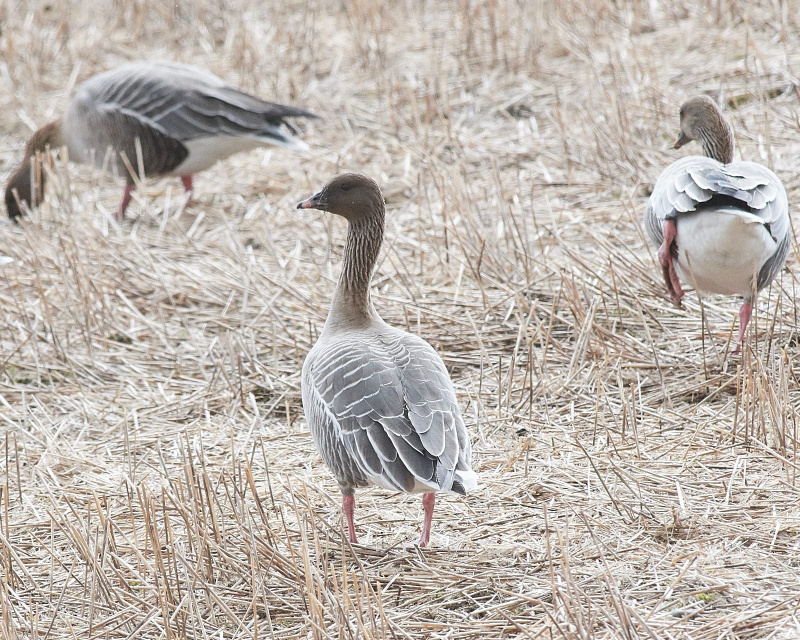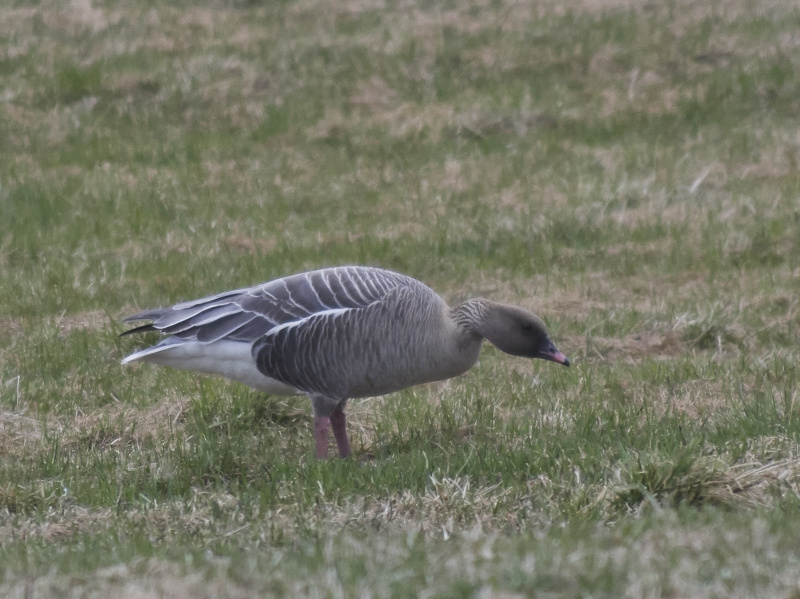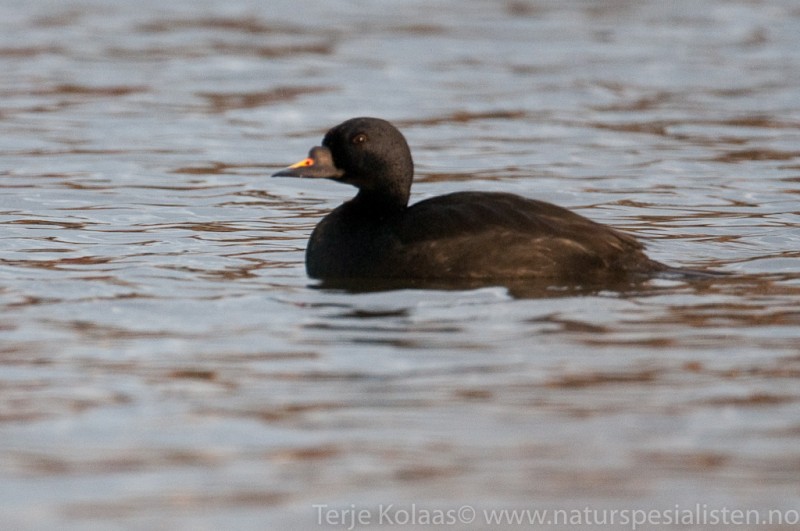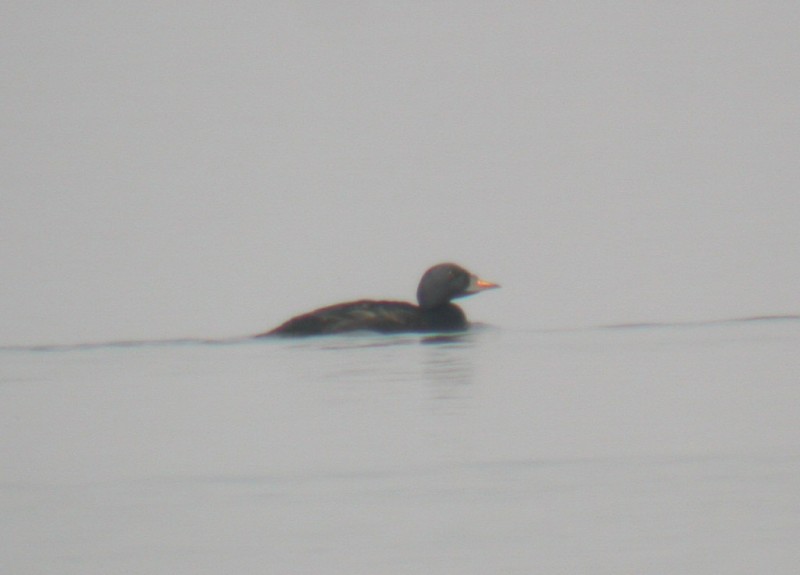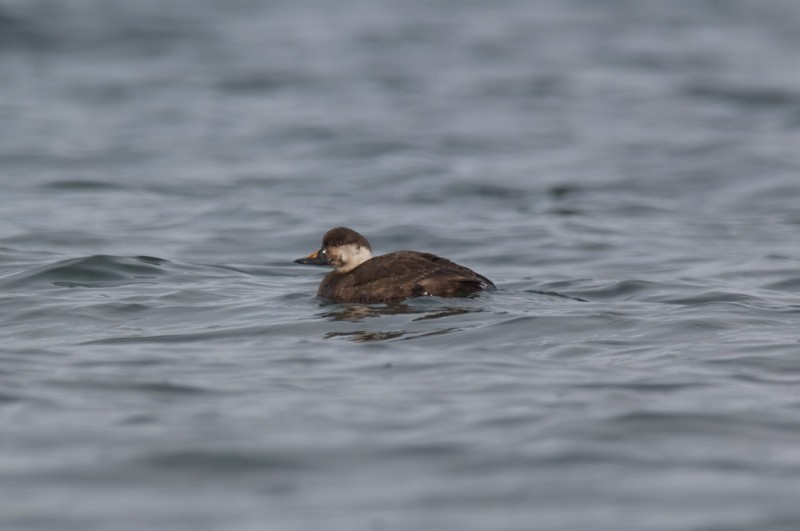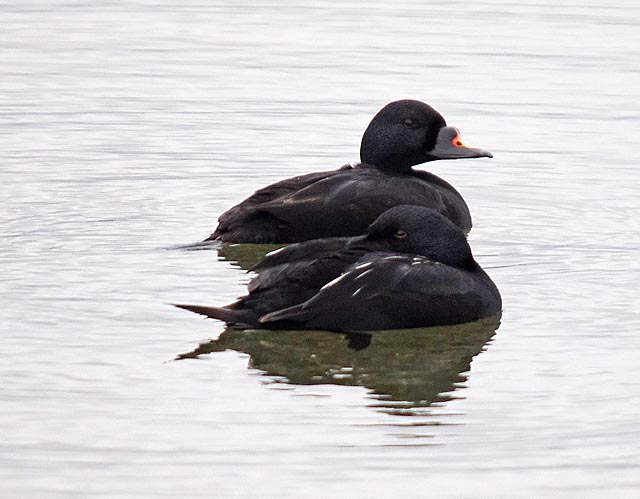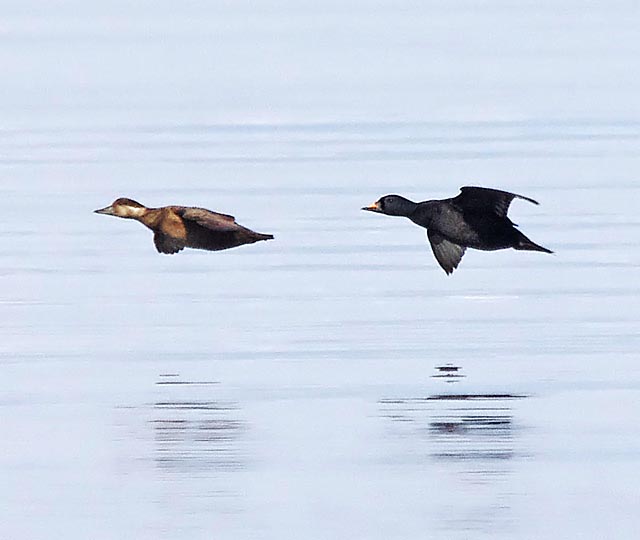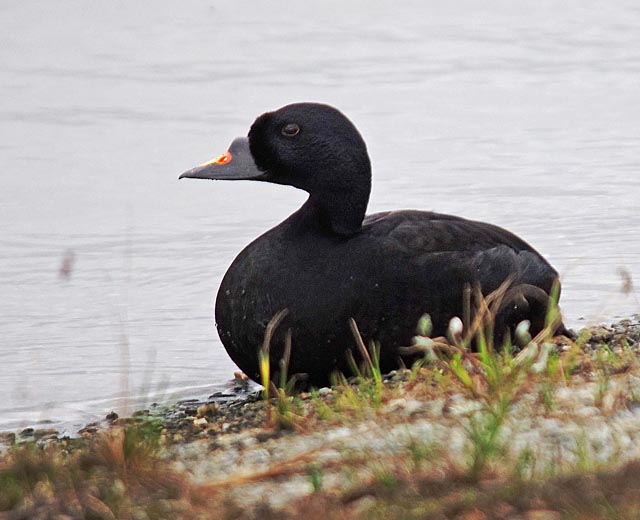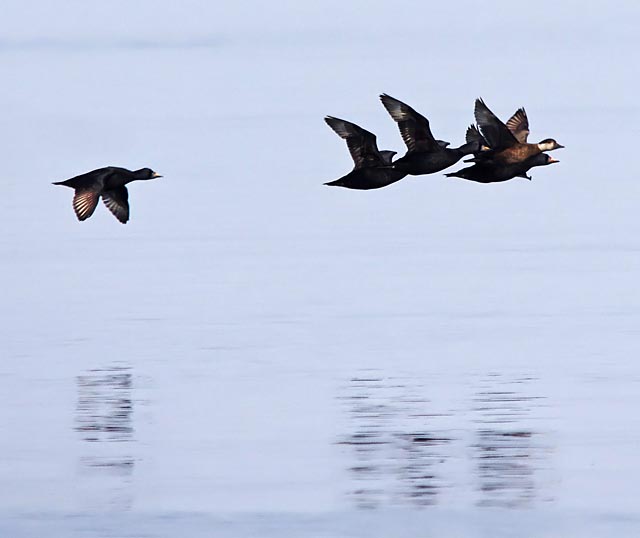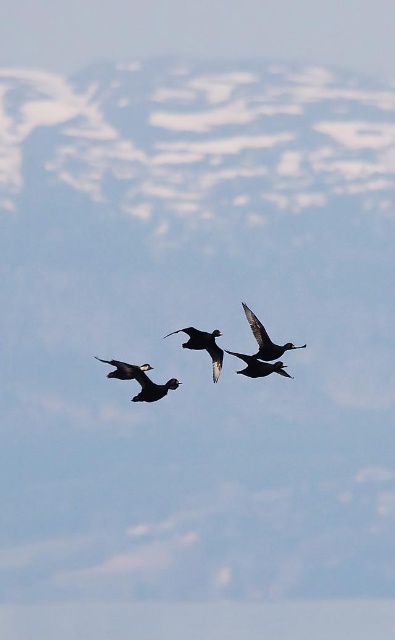Pink-footed Goose (Anser brachyrhynchus)
Common Scoter (Melanitta nigra)
Pink bill and legs distinguishes it from Bean Goose. This can however be a deceiving character in poor light. Also differs from Bean Goose by pale grey,not brownish, upperparts. The darkest part of the body is the flanks (Bean Goose have equally dark flanks and back).
Sound:Similar to Bean Goose and White-fronted Goose, but more nasal and a little higher pitched than the first, and less musical and laughing than the second. Easily told from Greylag Goose by frequent nasal, high pitched "wink-wink".
Contact call:
Distribution:
Wikipedia: map (se also Xeno-canto below)
Ecology:Birdlife ecology
Links:
Observation.org Latest observations
Image search Flickr NB! May give other species
CCSounds:Recorded by Elias A. Ryberg,http://www.xeno-canto.org ,CC license
Medium sized diving duck. Male all black except orange spot on bill. Female dark brown with contrasting light grey cheeks. Differs from Velvet Scoter in all plumages by lack of white wing-bars, and longer tail. Birds resting on the surface characteristically bow their head when occasionally flapping the wings. Wings held tight against body when diving. Last two characters usable for identification at very long range. Also tend to stay closer together in groups than Velvet Scoter.
Sound:More vocal than other Scoters. Short, whistling sounds, sometimes reminiscent of a male teal, but a little bit deeper in pitch.
Display-call male:
Distribution:
Xeno-canto: map
Ecology:Birdlife ecology
Links:
Observation.org Latest observations
Image search Flickr NB! May give other species
CCSounds:Recorded by Jarek Matusiak,http://www.xeno-canto.org ,CC license

 English
English Albanian
Albanian
 Armenian
Armenian
 Bulgarian
Bulgarian
 Catalan
Catalan
 Croatian
Croatian
 Czech
Czech
 Danish
Danish
 Dutch
Dutch
 Finnish
Finnish
 French
French
 Georgian
Georgian
 German
German
 Greek
Greek
 Hungarian
Hungarian
 Italian
Italian
 Latvian
Latvian
 Lithuanian
Lithuanian
 Macedonian
Macedonian
 Norwegian
Norwegian
 Polish
Polish
 Portuguese
Portuguese
 Romanian
Romanian
 Russian
Russian
 Sami : Lule sami
Sami : Lule sami
 Sami : North sami
Sami : North sami
 Sami : South sami
Sami : South sami
 Scientific names
Scientific names
 Serbian
Serbian
 Spanish
Spanish
 Swedish
Swedish
 Ukrainian
Ukrainian

